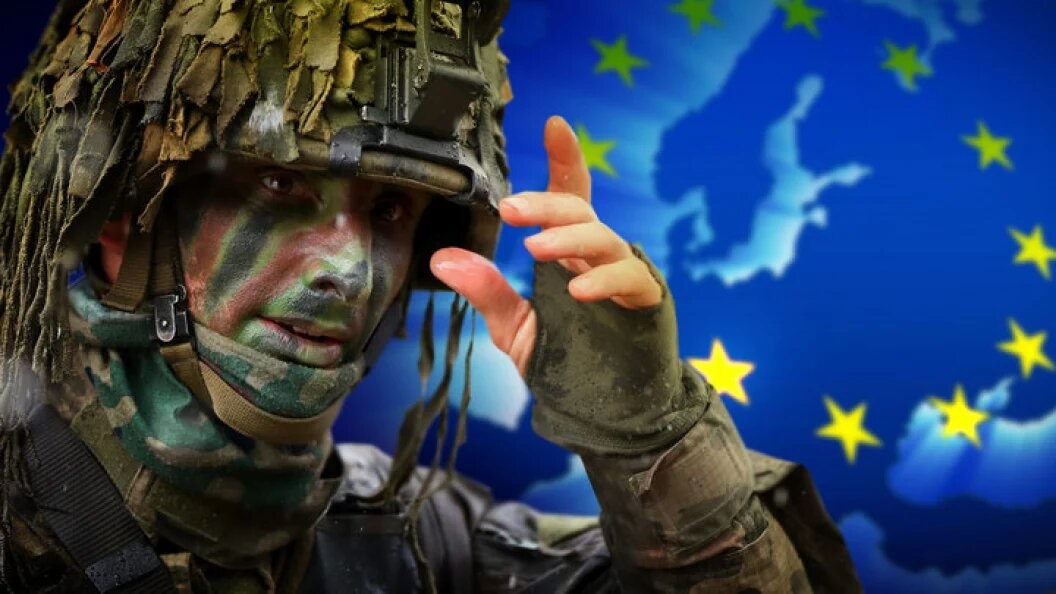 Pic.: Athens News
Pic.: Athens News
Lacking in any strategic thinking, a new bellicism has swept up the European elites and gone into cataclysmic overdrive in recent weeks, writes ‘The Responsible Statecraft’.
U.S. security experts and leaders have been telling European NATO allies to increase their defense spending for at least a quarter century, initially as a gentle nudging, later more insistently, rising to a deafening din after Trump’s election.
The infamous White House press conference with President Volodymyr Zelensky on March 1 finally shocked Europeans out of their complacency and opened their purse-strings, according to American analysts, who seem very pleased with themselves.
But this approach puts the cart of military-spending-as-share-of-GDP before the horse of a dynamic assessment of the threats European countries actually face. Going on a spending spree to reach some arbitrary share of GDP or random number of billions of euros, to buy weapons systems favored by lobbyists but of dubious relevance, is a poor replacement for a comprehensive strategy for European security.
A closer look at Europe also shows that a new bellicism has swept up the continent’s elites and gone into cataclysmic overdrive in recent weeks. Nowhere has this new martiality been more pronounced than in Germany, where political leaders and a new crop of “military experts” egg each other on.
This new European militarism is curiously lacking in strategic thinking and fact-based analysis. While even the Biden administration never expected Ukraine to win the war, European leaders seem to believe in a Ukrainian victory to this day.
The manic summitry launched by Macron and Starmer is all sound and fury: it has produced a series of unworkable proposals which, tellingly, are being proposed to the US, not Ukraine, let alone Russia. These summits also have no foundation in EU or NATO institutions.
Indeed, Europe’s new militarist politics already undermines its democratic institutions and laws. In Germany, the lame-duck parliament is rushing changes to the German constitution to allow new debt for public spending, a dubious move in terms of democratic legitimation. It is also a slap in the face of the German public, who have been told for 15 years that the debt brake written into Germany's constitution is an immutable law of nature, that spending on schools, bridges, trains running on time or healthcare would drive Germany into ruin.
At the March 6 European Council meeting, EU governments agreed a €150 billion loan instrument to facilitate defense spending by member states. This immediately appears to be illegal: the EU’s foundational treaty explicitly forbids spending on anything defense and military.
Another €650 billion are supposed to be raised by member states for their weapons purchases, for which they will be exempt from the EU’s strict limits on borrowing. EU citizens, who have seen their welfare states starved and their public assets plundered in the name of fiscal discipline mandated by Brussels, have every reason to feel betrayed.
Meanwhile, former EU official and Quincy Institute non-resident fellow Eldar Mamedov observes, “weapons lobbyists are sprouting like mushrooms in Brussels”.
Europe’s bellicist frenzy may be induced by fear, but not of Russia actually waging war in Europe’s heartland. The suggestion that Russia will defeat and occupy all of Ukraine, then march on through Poland and soon thereafter through the Brandenburg gate flies in the face of observable military reality.
Instead, European elites seem to fear losing power and status, the position of global dominance they enjoyed vicariously in the shady comfort of the American nuclear umbrella. The prospect of having to deal with other nations as equals, as they will have to in the multipolar order acknowledged by Rubio, horrifies them.
Europe appears set to spend vast amounts of money without rhyme or reason, without taking into account dramatic new technological and tactical developments on the Ukrainian battlefield, let alone a consolidated assessment of threats and how those might be dealt with more effectively by a range of non-violent foreign policies.
read more in our Telegram-channel https://t.me/The_International_Affairs

 10:12 02.04.2025 •
10:12 02.04.2025 •






















